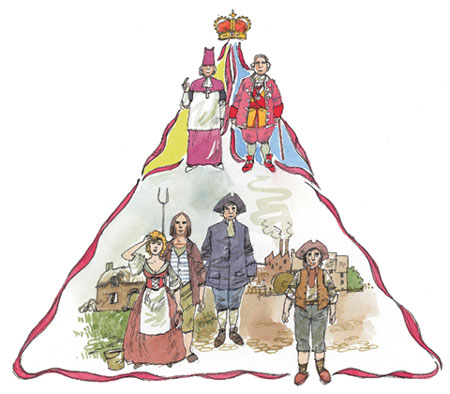I'm back with a bit more lore for you guys. Also, actually a good point by V_K. Thanks for pointing that out.
In the game, there are basically three political factions, and the duke Nicolas represents the main opposition to the current system in the Animal Kingdom. Nicolas started the reformist movement
The duke started as a general in the
Lav rebellion, but has since amassed a large following among the influential scholars and the gentry.
In a way, he forms the third of the three political powers in the Kingdom – the first being
King Lav, the enlightened monarch whose lenient rule brought about piece and prosperity to the Kingdom, and the second being the revolutionary eagle
Coriolanus, the revolutionary who currently resides in the heavily guarded colony prison facility.
Similar to King Lav, Nicolas is a strong believer in the hierarchy of animals and division of labour within the castes as defined not only by the
Ark myth but also by (dubious)
science. However, unlike the royalists, Nicolas believes that the lesser castes have the innate ability to perceive the true leadership of individuals.
Thus, leadership of the Kingdom should not be birth-given, but attained by the will of the animals by a democratic procedure. The leader should then be selected as a Chancellor, and his power stemming from not only his innate abilities to rule but also from the animals perceiving and acknowledging these abilities. This, Nicolas believes, will make rulers more accountable and less prone to
tyranny, as has been known to happen.
The sketch of the entrance to the “Tiger villa” – a place of the fanciest of balls and tea-parties in the Kingdom. We’ve drawn Charles in for scale.
Nicolas has adopted several ideas from scholars and academics on how a transformation of the monarchy into a democracy should improve life for all animals, regardless of caste. These ideas are frowned upon in the royal circles, and as a duke himself, Nicolas has to be careful in his words and actions, since open rebellion against the King will only get him in one of the
aforementioned work camps of the Kingdom.
His followers are often referred to as “reformists”. Some of them feel that the monarchy is an outdated notion, and some just want a system where they wield more local power.
The richer
Commoners such as the scholars and merchants and especially the
Steward caste, are attracted to Nicolas’ ideas of
regional taxation – the abolition of the “King’s Tenth”, and similar centralised systems of rule – which they feel are a burden to their (and the Kingdom’s) prosperity.
Nicolas’ summer palace, where he invites the creme-de-la-creme of Kingdom society, and plots democracy.
The idea of “relaxing” the Monarchy and its hold onto the regions it commands appeals to many
Nobles as well, who feel that the balance of power might be turned slightly in their own favour – as regional powers have
long been controlled by the Crown without much say in their own regional matters.
When combined, this proves to be a worthy and powerful group of like-minded animals, and the King is rightly worried for the future of the Monarchy. However, it is King Lav’s belief that strengthening his grip would only remind the Kingdom of the
era of Leopold. The King has therefore decided to tolerate the brewing dissent (from both the Nicolas-led reformists and the Coriolanus-led revolutionaries) and try to win the favor of the population in a different way.
This is where the game begins – with the Kings gambit that
Charles, a famous hedgehog scholar, could find the ancient Ark and prove the myth to be true, and thus appeal to the sense of tradition and reason within each animal – once the products of science align themselves with the promises of intuition, all will again be right in the world.
































